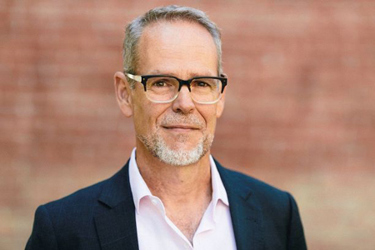So You Want To Be An Outsourcing-Industry Entrepreneur?

By Louis Garguilo, Chief Editor, Outsourced Pharma

Secretly, somewhere inside you, is the thought: I’d like to leave this job at my established biopharma company.
You wonder: Can I – How would I? – start my own, wait for it: contract service organization.
Jeffrey P. Kiplinger, PhD, ended up doing just that.
Kiplinger is a former executive at Pfizer, and former founder/CEO of an analytical service provider. He’s written a book on entrepreneurship that includes many experiences from our drug development and manufacturing outsourcing industry.
Expert To Entrepreneur – How To Turn Your Hard-Won Expertise Into A Thriving Business, published last year, isn’t specific to starting a biopharma-related contract business; it is a how-to/guide applicable to most anyone with thoughts of going out on your own and trading up on their expertise.
Kiplinger focuses on those professionals – like most of you – scientific in nature, analytical in thought, perhaps engineers. And he uses professionals of the drug development and manufacturing industry as a teaching template.
Graciously, Kiplinger has allowed me to share some of his book with Outsourced Pharma readers.
Not A Big Pharma Type
Kiplinger landed his first job at Pfizer in 1989, where he worked for a decade.
Nonetheless, he writes, “I've always had a bit of a problem with authority.”
During his time at Pfizer, Kiplinger invented and developed “quite cool technologies that changed the way the whole pharmaceutical industry approached discovery and development of new drugs.”
As he continued to grow in confidence in his work at Pfizer, he writes, “I arrogantly thought I could do a better job if I were to be my own boss.”
Still, Kiplinger liked working at Pfizer overall, and “it was easy to talk myself out of taking the big risk of giving up salary and benefits to go out on my own.”
But he ended up not needing to make that decision. He was fired.
He writes about the indecision that followed, and some tough, very personal challenges as well. Eventually, and tentatively, he started consulting.
One of Kiplinger’s initial clients had been outsourcing a specific type of chromatography to a talented contract services lab, at the rate of $250,000 per year, but that contractor suddenly announced it was going out of business.
Here was the final impetus Kiplinger needed to become a CEO and entrepreneur: He’d figure out how to take on the chromatography work for this client himself.
This, he thought, is an opportunity in a business sector I am well versed in, "and I already have a paying customer."
The rest is happy entrepreneur history. Expert To Entrepreneur describes his multi-year experiences and research that successfully ended in his selling his service provider and, no pun intended, entering a new chapter of his life.
Spoiler alert: building a company that survives its founder(s) is one of his golden tenets.
No Right Personality
A seminal question early in the book:
“Is there an entrepreneurial nature – a common set of traits that characterize entrepreneurs?”
He partially answers that by mentioning he and two other professionals who started analytical services companies, have taken the Myers-Briggs Type Indicator personality assessment test.
The results showed the three had quite divergent personality sets.
“There seems to be plenty of room in the entrepreneurial class, and within any field of science, for various personality types,” he writes.
“The makeup of an entrepreneur is a multivariate equation, and research generally concurs.”
But on some points, there is convergence.
“Highly analytical and objective individuals – like your readers? – tend to hate selling.”
“People like us will do almost anything to avoid selling,” he warns. Moreover, “I am abundantly aware that as trained and analytical thinkers, scientists and engineers are also skeptical of marketing … We tend to perceive marketing as being about the product and the seller, not about us as customers.”
But as Expert To Entrepreneur details, if you indeed didn’t already know, sales and marketing need to be performed adeptly for your start-up to succeed.
About Those Customers
“When I started my analytical drug development firm, I chose to define my customer as managers of oral drug development programs working from the preclinical to the early clinical development stage.”
It wasn’t until later, he writes, “Our company worked with later-stage drug development programs, developed some quality control assays, and stepped outside of working only on oral drugs. We expanded not by offering new services or developing a new network of people outside our chosen focus.”
“Instead, new types of customers came to us because they had heard we were doing great work for colleagues and acquaintances in other fields.
“Gradually, we developed a reputation for doing good work in new areas and our prospect base grew and improved.”
This strategy for, shall we say, restrained growth and carefully tended expansion, might prove beneficial to many established service providers todayl.
“Prospects typically don't trust providers who claim a broad range of capabilities, preferring that their important projects go to a specialist,” Kiplinger says. “If you try to compete with bigger, more established players by copying their list of services, your prospects will wonder how you can do all that as a small player.”
“Ever see a company lead [its marketing/advertising] with, ‘We specialize in...’ and then list 10 services?”
If so, Kiplinger believes science-based entrepreneurs would not only need to overcome that prospective-customer reticence to a new sales and marketing blitz, but also ensure each of those expanded services were on as high a level as their core services.
I’ll leave off here with a final word from Kiplinger’s Expert To Entrepreneur, as he quotes sales guru Brian Tracy, author of The Psychology of Selling:
“Selling really is a transfer of enthusiasm.”
Meaning, of course, first you need to be genuinely enthused with what you are doing and providing to succeed as a professional offering their hard-earned skills and knowledge to others in the industry.
